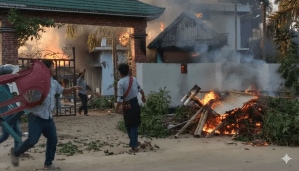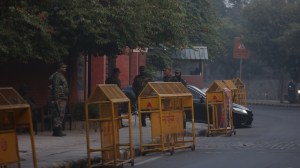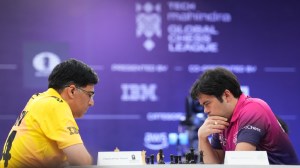US backs Iran civilian N-programme
The US on Friday for the first time accepted that Iran could develop civilian nuclear programmes, backing an EU proposal made earlier in the...

The US on Friday for the first time accepted that Iran could develop civilian nuclear programmes, backing an EU proposal made earlier in the day, that would allow Tehran to pursue atomic power in exchange for relinquishing fuel work.
In a compromise that completed a gradual shift in US policy, Washington acquiesced because it believes the EU offer has enough safeguards to prevent Iran diverting its civilian work into making nuclear bombs.
8216;8216;We support the Europeans8217; effort and the proposal they have put forward to find a diplomatic solution to this problem,8217;8217; State Department spokesman Tom Casey told reporters.
The US announcement is in contrast with its stance in talks with North Korea, which it insists cannot have any nuclear development.
However, US opposition to nuclear power plants has been seen to diminish this year. Secretary of State Condoleezza Rice has increasingly pointed to a power plant deal between Russia and Iran as an example of how to limit the risk from a civilian programme because Moscow controls the fuel.
The EU on Friday had insisted that Iran give up nuclear fuel work and called an urgent meeting of the UN nuclear watchdog, IAEA, on Tuesday, which could refer Tehran to the UNSC for sanctions.
But a senior Iranian nuclear negotiator said the Islamic republic would resume work at a nuclear fuel plant regardless of EU proposals for political and economic incentives that included support for building nuclear power stations.
8216;8216;As Iran will have an assured supply of fuel over the coming years, it will be able to provide the confidence needed by making a binding commitment not to pursue fuel cycle activities other than the construction and operation of light water power and research reactors,8217;8217; said a copy of a summary of the proposals obtained.
The bloc offered to guarantee supplies of fuel for light-water nuclear power reactors, but insisted Iran 8216;8216;commit to returning all spent fuel elements8217;8217; to the supplier. Spent fuel can also be used in atomic weaponry.
Iran also had to agree to stop building a heavy water reactor near the town of Arak that 8216;8216;gives rise to proliferation concerns8217;8217;, the proposal said.
The trio said in return, they would work to speed up the signing of a Trade and Cooperation Agreement with Iran, back Iran8217;s entry into the World Trade Organisation, promote energy cooperation, and work together on regional security.
Iranian officials said the offer also included backing for Iran to be the main route for oil and gas exports from Central Asia, but the summary made no specific mention of this.
8212;Reuters
- 01
- 02
- 03
- 04
- 05































